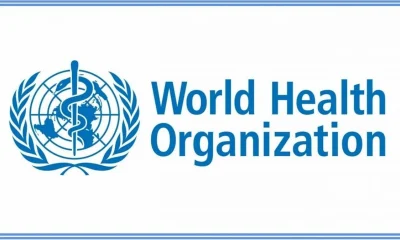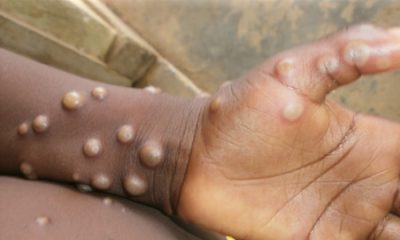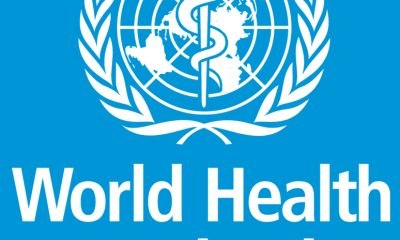HEALTH
WHO May Convene Emergency Committee Over Mpox Outbreak

The head of the World Health Organization (WHO) announced on Sunday that he is considering convening an expert committee to evaluate whether the escalating mpox outbreak in Africa should be declared an international emergency.
Since September of last year, cases have surged in the Democratic Republic of Congo (DRC), with a new strain of the virus now detected in neighboring African countries. WHO Director-General Tedros Adhanom Ghebreyesus stated that the UN health agency, Africa Centres for Disease Control and Prevention, local governments, and partners are ramping up their response efforts.
However, Tedros emphasized the need for additional funding and support for a comprehensive response on social media platform X.
“I am contemplating convening an International Health Regulations emergency committee to advise on whether the mpox outbreak should be classified as a public health emergency of international concern,” Tedros said.
A Public Health Emergency of International Concern (PHEIC) is the highest level of alarm the WHO can issue. Tedros can declare such an emergency based on the advice of a committee of experts.
In a statement to the journal Science, Tedros noted, “This virus can and must be contained with intensified public health measures, including surveillance, community engagement, treatment, and targeted vaccine deployment for those at higher risk of infection.”
Formerly known as monkeypox, mpox is an infectious disease transmitted to humans by infected animals and can also spread through close human contact. First discovered in humans in 1970 in the DRC, the disease causes fever, muscle aches, and large skin lesions. There are two main subtypes: Clade I, which is more virulent and endemic in the Congo Basin, and Clade II, found in West Africa.
In May 2022, a surge in mpox cases worldwide, particularly among gay and bisexual men due to the Clade IIb subclade, prompted the WHO to declare a PHEIC, which lasted until May 2023. The current outbreak, driven by the Clade Ib subclade, has seen a significant rise in cases in the DRC since September 2023.
On July 11, Tedros reported over 11,000 cases and 445 deaths in the DRC this year, with children being the most affected.
The African Union has approved $10.4 million from Covid funds to support the Africa CDC’s efforts to combat the outbreak, focusing on monitoring, testing, data collection, case management, and vaccine access.
Recently, Burundi, Kenya, and Uganda have reported new cases, with the infections linked to the DRC.
The International Health Regulations (IHR) framework governs countries’ rights and obligations in managing cross-border public health events. Under the IHR, the WHO chief can declare a PHEIC, triggering emergency responses. Since 2009, PHEIC declarations have occurred seven times, including for H1N1 swine flu, poliovirus, Ebola, Zika virus, Covid-19, and mpox.










![Top Nigeria Newspaper Headlines Today 25th June 2024 [Tuesday] 83 Nigeria Newspaper Headlines](https://nigerianews247.com/wp-content/uploads/2024/04/Nigeria-Newspaper-Headlines-80x80.png)

![[VIDEO] Tinubu Stumbles while Boarding Presidential Parade Vehicle at Eagles Square 86 Tinubu Stumbles while Boarding Presidential Parade Vehicle at Eagles Square](https://nigerianews247.com/wp-content/uploads/2024/06/Tinubu-Stumbles-while-Boarding-Presidential-Parade-Vehicle-at-Eagles-Square-80x80.jpeg)


You must be logged in to post a comment Login